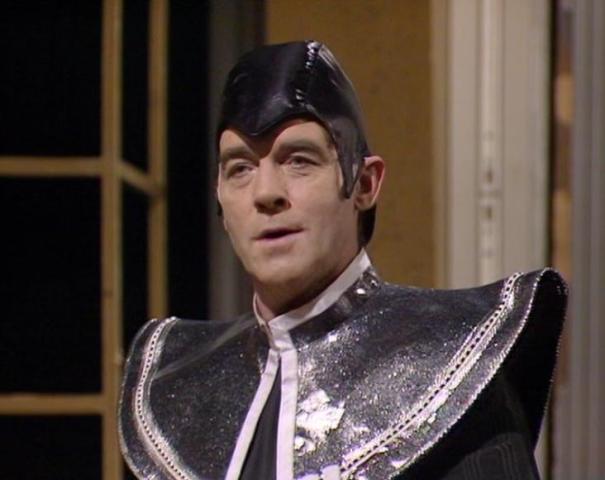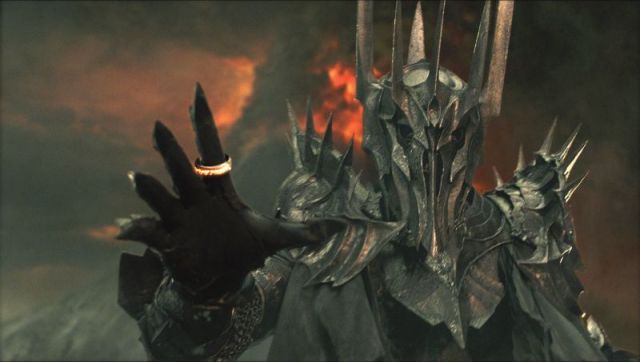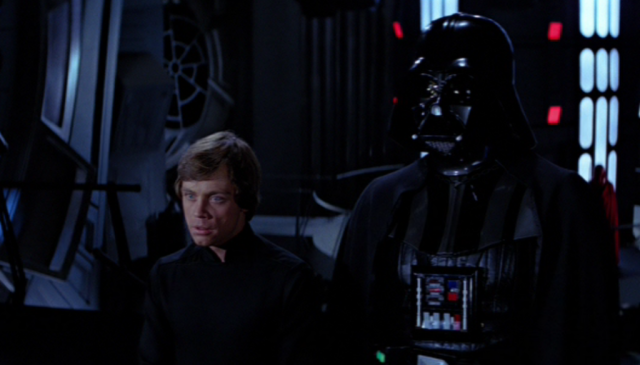Politics made Potter! Chinese and Japanese ambassadors have been showing their Harry Potter knowledge in a recent dispute, and we applaud them for putting international relations on our level. As a thank you, we’ve come up with more analogies (similes, too!) that politicians can choose from they next time they need to reference pure evil.
Chinese ambassador Liu Xiaoming is quoted in The Telegraph as saying, “If militarism is like the haunting Voldemort of Japan, the Yasukuni Shrine in Tokyo is a kind of horcrux, representing the darkest parts of that nation’s soul.” Japanese ambassador Keiichi Hayashi replied that China plays “the role of Voldemort in the region by letting loose the evil of an arms race and escalation of tensions.”
Things could be tense in the region for a while, and we imagine the various ambassadors will be needing new analogies soon enough, so here are five more. You know… just in case.
1. Valeyard

(Image via Doctor Who)
Obviously, if militarism is the haunting War Doctor of Japan, then the Yasukuni Shrine is a kind of Valeyard, representing the darkest parts of that nation’s soul.
2. Sauron

(Image via The Fellowship of the Ring)
If militarism is the Sauron of Japan, then clearly the Yasukuni Shrine is the The One Ring itself.
3. Khan

(Image via The Wrath of Khan)
But, if militarism is the Khan of Japan, then the Yasukuni Shrine would be like the SS Botany Bay.
4. Ganon

(Image via The Legend of Zelda)
If Japan’s militarism is Ganon, then that would make the Yasukuni Shrine the Triforce of Power.
5. The Emporer Luke Skywalker’s Inner Turmoil

(Image via Return of the Jedi)
Finally, as tempting as it would be for the ambassadors to compare the militarism of Japan to Emperor Palpatine and the Yasukuni Shrine to the Death Star, that would be a misstep. The hero’s journey of Luke is ultimately a battle against his own demons and temptations, so the militarism of Japan is in fact Luke’s desire to join the Dark Side, while the Yasukuni Shrine would be his severed hand. Elected office, here we come.
(via Huffington Post, image via Leah)
Meanwhile in related links








Published: Jan 7, 2014 02:13 pm